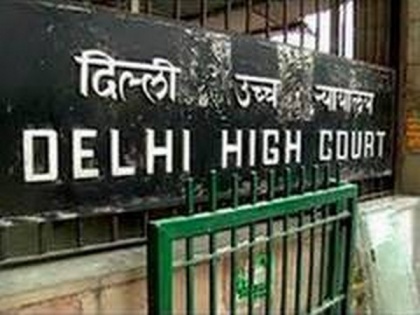No furlough to murder convicts sentenced to life without remission: Delhi HC
By ANI | Published: July 4, 2020 07:00 PM2020-07-04T19:00:44+5:302020-07-04T19:10:33+5:30
The Delhi High Court has cleared that the convicts awarded sentence for a particular period or for life with the stipulation that no remission will be granted to him in that period, are not entitled to furlough, while dismissing a plea of serial killer along with a rape and murder convict.

No furlough to murder convicts sentenced to life without remission: Delhi HC
The Delhi High Court has cleared that the convicts awarded sentence for a particular period or for life with the stipulation that no remission will be granted to him in that period, are not entitled to furlough, while dismissing a plea of serial killer along with a rape and murder convict.
"Consequently, the issue raised in the two petitions that whether a convict who has been awarded sentence for a particular period or for life with the stipulation that no remission will be granted to him in that period is entitled to furlough or not, is answered in the negative," Justice Mukta Gupta said.
Justice Gupta strong observation came while dismissing two seperate petitions filed by two persons convicted in different murder cases.
One of the petition was filed by serial killer Chandra Kant Jha, who was convicted in three different FIRs for offence punishable under Section 302 (murder) of the Indian Penal Code (IPC). Jha was awarded punishment of life imprisonment with a direction that he would not be released on remission for the remainder of his life.
The other petition was filed by Sanjay Kumar Valmiki, who was convicted under various charges dealing with rape and murder and sentenced to rigorous imprisonment for life with stipulation of a minimum period of 25 years.
"The petitioners (Jha and Valmiki) are thus not entitled to grant of furlough," the court said.
"...the contention of counsels for the petitioners that in case furlough is not granted, the petitioners will be denied consideration of their case from a reformative angle is incorrect," the court said adding that the petitioners would be entitled to seek parole even for re-establishing social and family ties.
A parole is a conditional release of prisoners, conditional on good behaviour and regular reporting to the authorities for a set period of time or some emergency requirements in the family. Furlough, on the other hand, is a brief release from the prison, it is conditional and is given in case of long term imprisonment. For parole, specific reason is required, whereas furlough is meant for breaking the monotony of imprisonment.
Under Rule 2(17) of Delhi Prison Rules,2018, furlough is defined as leave as reward granted to a convicted prisoner who has been sentenced to rigorous imprisonment for five years or more and has undergone three years thereof. Under Rule 1199, furlough means release of a prisoner for a short period of time after a gap of a certain qualified number of years of incarceration by way of motivation for maintaining good conduct and to remain disciplined in the prison. This is purely an incentive for good conduct in the prison. Therefore, the period spent by the prisoner outside the prison on furlough shall be counted towards his sentence.
The court also noted the Rule 1171 of the Delhi Prison Rules, 2018, which clarifies that if any statute or the court in its order of sentence has denied the remission to the prisoner and thereby not specified the kind of remission to be denied then all kinds of remission will be denied.
"Therefore, unless the sentencing Court while stipulating the condition of no remission specifies debarment of any particular kind of remission, all kinds of remissions shall be barred to a prisoner. Consequently, as the sentences awarded to the petitioners bar consideration for remission for fixed number of years in the case of Sanjay Kumar Valmiki and for the remainder life in case of Chandra Kant Jha, the petitioners cannot be said to be eligible for grant of remission and consequently furlough," the court said.
The court while deciding the issues relies on the various landmark judgement of Supreme Court whereby it is held that parole is an exercise of discretion whereas furlough is a salutary right of the convict to be considered for release which the convict can claim if he satisfies the requirement of the Act and the Rules. Parole is granted to meet certain emergencies whereas furlough accrues to the petitioner on compliance of the conditions prescribed.
Jha, who hails from Bihar, had allegedly killed six people from 2003 to 2007. After killing, Jha dumped the headless body outside the Tihar jail with notes to Delhi Police, challenging them to catch him. Valmiki was convicted in eight-year-old girl's rape and murder case in July 2011 in north-west Delhi.
( With inputs from ANI )
Open in app